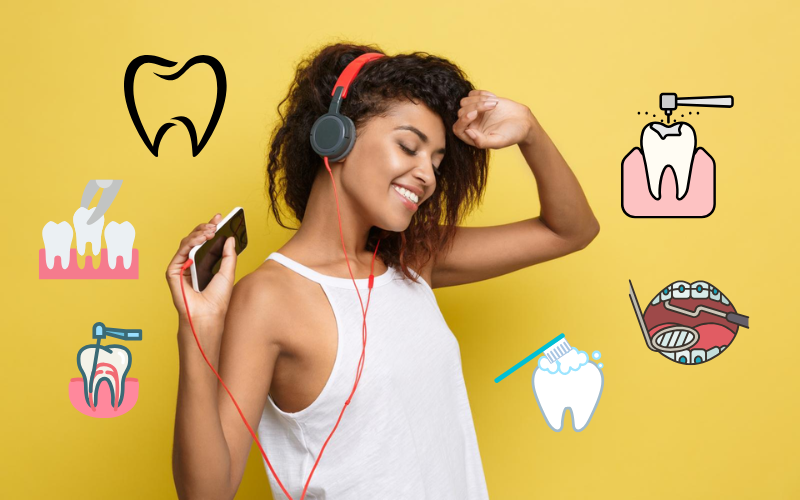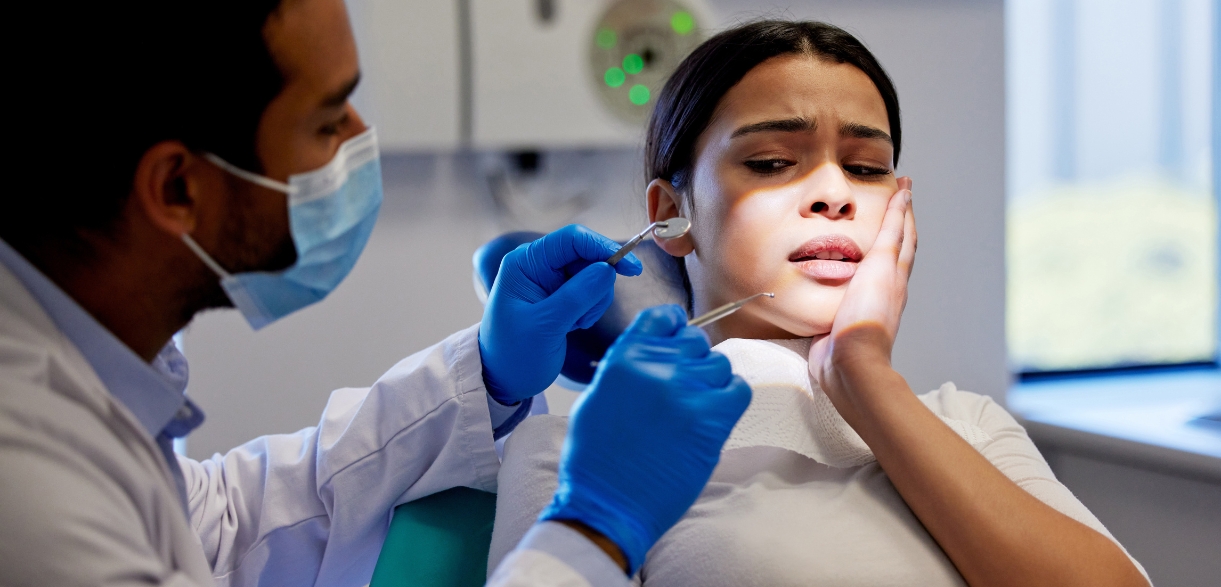BOOK ONLINE

If your heart races at the prospect of sitting in a dentist’s chair, then let us tell you, there are others like you! Dental anxiety affects millions of people, who frequently put off getting checked out until they are forced to do so because of discomfort.
About 36% of people have some past experience of dental anxiety, and 12% are extremely afraid, according to the American Dental Association.
However, what precisely causes this fear? Dental anxiety can be caused by a number of things, including the sound of a drill and unpleasant memories. To overcome these triggers, you must first understand them! We’ll dissect the main reasons people are afraid of the dentist in this blog to help you feel less anxious during your next appointment. Let’s get started!
Points To Note Down for What Causes Dental Anxiety
The First Trigger Is The Fear Of Pain
One of the main causes of dental anxiety is pain, which is often associated with traumatic memories, needle phobia, or drill noise. Ways to handle it:
- Enquire about painless dentistry or sedation.
- Select a clinic that uses gentle and latest methods.
- To block sounds, put on noise-cancelling headphones.
Unfavourable Previous Experiences
A bad dental experience, particularly as a child, can cause fear that lasts a lifetime. To manage it, the following points are advisable.
- Select a dentist who has handled nervous patients before while treating dental anxiety.
- Find a caring provider by reading reviews.
- To regain confidence, begin with a straightforward, non-invasive treatment.
Control on Loss and Vulnerability
Patients can get anxious during a procedure if they are unable to observe what is happening.
- Ask the dentist to go over each step with you in advance.
- To indicate discomfort or to pause, use hand signals.
- To keep calm, engage yourself in deep breathing exercises or meditation.
Disgrace Regarding Dental Health
Anxiety and avoidance can come from a fear of being judged for having cavities, bad breath, or dental problems. There’s no need to feel embarrassed because dentists have seen it all. Pay attention to how your confidence level & health are enhanced by the treatment and select a dentist who is understanding and nonjudgmental.
Sensitive To Sensations
It can be overwhelming to be surrounded by loud music, bright lights, and strong aromas.
To lessen your sensitivity to light, put on sunglasses. Use essential oils to cover up offensive odors and enquire about low-vibration, quieter dental tools.
Phobias and Generalised Anxiety Disorder
Anxiety related to dentistry can be connected to more general problems such as PTSD, GAD, or previous trauma. It is recommended to seek therapy for treating underlying anxiety. For extreme anxiety, think about sedation dentistry.
Although dental anxiety is normal, it shouldn’t stop you from receiving the care you require. It is possible to actively control your anxiety by being aware of the triggers, which may include past experiences, sensory sensitivity, or dread of pain. Using relaxation techniques and talking to our trusted dentist can all have a big impact.






